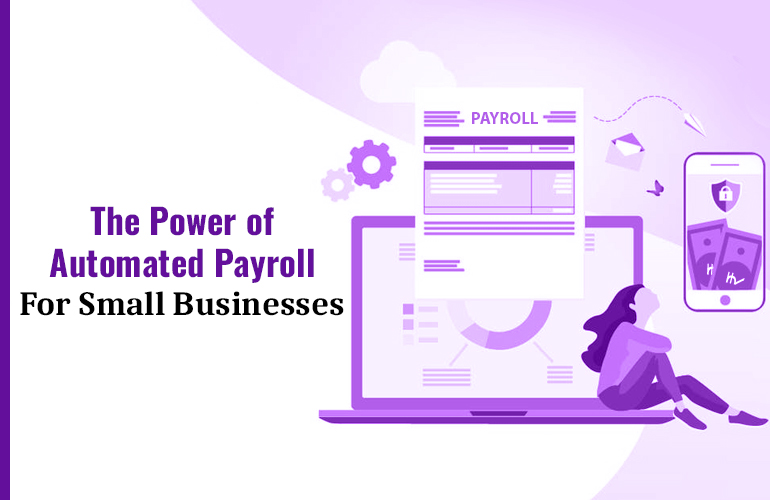In the dynamic landscape of small business management, HR managers often find themselves grappling with various challenges. From managing employee data and maintaining compliance to ensuring accurate and on-time payroll processing, the HR responsibilities in small businesses can be overwhelming. This guest post will explore HR managers’ common pain points and how automated payroll solutions offer efficient remedies.
The HR Challenges in Small Businesses
Small businesses might not have the same scale as larger corporations, but their HR departments are equally vital. HR managers in small businesses face several unique challenges, including:
- Administrative Overload: HR managers often find themselves buried under a mountain of paperwork, from onboarding new hires to managing employee records.
- Compliance Concerns: Small businesses must adhere to complex labour laws and regulations, which can lead to severe consequences.
- Time-Consuming Payroll: Processing payroll manually is time-consuming and prone to errors, which can lead to unhappy employees.
- Data Security: Ensuring the security of sensitive employee information is critical, but small businesses may not have robust data protection measures in place.
- Employee Satisfaction: Keeping employees happy and motivated is challenging when HR managers are bogged down with administrative tasks.
Automated Payroll Solutions as the Remedy
Many small businesses are turning to automated solutions for payroll to tackle these challenges. Here’s how these solutions provide effective remedies:
- Streamlined Processes: Payroll systems reduce administrative tasks, allowing HR managers to focus on more strategic activities. They streamline onboarding, time tracking, and other HR processes.
- Compliance Confidence: Solutions for processing payroll are designed to stay up-to-date with the latest labour laws and regulations, reducing the risk of compliance issues.
- Time and Error Savings: With automation, payroll processing becomes faster and more accurate. HR managers no longer need to spend hours calculating paychecks, and the risk of errors is minimised.
- Enhanced Data Security: Leading payroll software offers robust data security features, ensuring that employee information is kept safe from breaches.
- Employee Self-Service: Many payroll systems provide employees with self-service options, allowing them to access their payroll information and request time off, which can boost overall satisfaction.
- Scalability: Small businesses can easily scale their operations up or down with software systems, adapting to their changing HR needs.
- Reporting and Analytics: These systems provide valuable insights into HR operations, allowing HR managers to make data-driven decisions.
Measurable ROI and Cost Savings
One of the significant advantages of adopting HRMS for small businesses is the potential for a measurable return on investment (ROI). While initial setup costs and subscription fees may be associated with payroll software, the long-term benefits far outweigh the investment.
Software for payroll processing can significantly reduce the time and effort spent on manual payroll processing. This translates into cost savings by reducing the labour hours required for these tasks. HR managers can channel their efforts into more strategic and value-added functions, such as employee engagement and talent development, contributing to the company’s growth.
Furthermore, the accuracy of automated systems reduces the likelihood of costly errors that may occur in manual processing. This helps businesses avoid penalties and fines resulting from compliance violations, saving money.
Tips for a Smooth Transition to Automated Payroll
Transitioning from manual payroll processing to an automated system can be a game-changer for small businesses. However, it’s essential to navigate this change effectively. Here are some tips to ensure a smooth transition:
- Employee Training: Provide comprehensive training to your HR team and employees on how to use the new system. Ensure they understand the self-service options and can easily access their payroll information.
- Data Migration: Migrating employee data from the old system to the new one should be seamless. Ensure that all historical payroll data is transferred accurately.
- Selecting the Right Software: Choose payroll software that aligns with your business needs. Look for user-friendly interfaces, robust security features, and excellent customer support.
- Vendor Collaboration: Collaborate closely with your chosen payroll software vendor. Their expertise can help you maximise the system’s features and functionalities.
- Data Security: Pay close attention to data security and ensure that your chosen payroll software complies with data protection regulations.
- Regular Updates: Stay informed about software updates and new features. Regularly update your system to leverage the latest capabilities.
By following these tips and making a well-informed choice, small businesses can transition smoothly to payroll management and reap the benefits of streamlined HR processes, improved compliance, and cost savings.
It’s a step that paves the way for more efficient and headache-free HR operations.
Conclusion
Small business HR managers don’t have to endure the headaches often accompanying their roles. Automated payroll solutions offer a range of benefits that can streamline processes, improve compliance, and ultimately make HR management in small businesses more efficient and effective.
In today’s fast-paced business environment, leveraging technology is essential to stay competitive. Small businesses can save time, reduce errors, and enhance employee satisfaction by adopting HRMS. It’s a smart step toward headache-free HR management in the modern business world.




